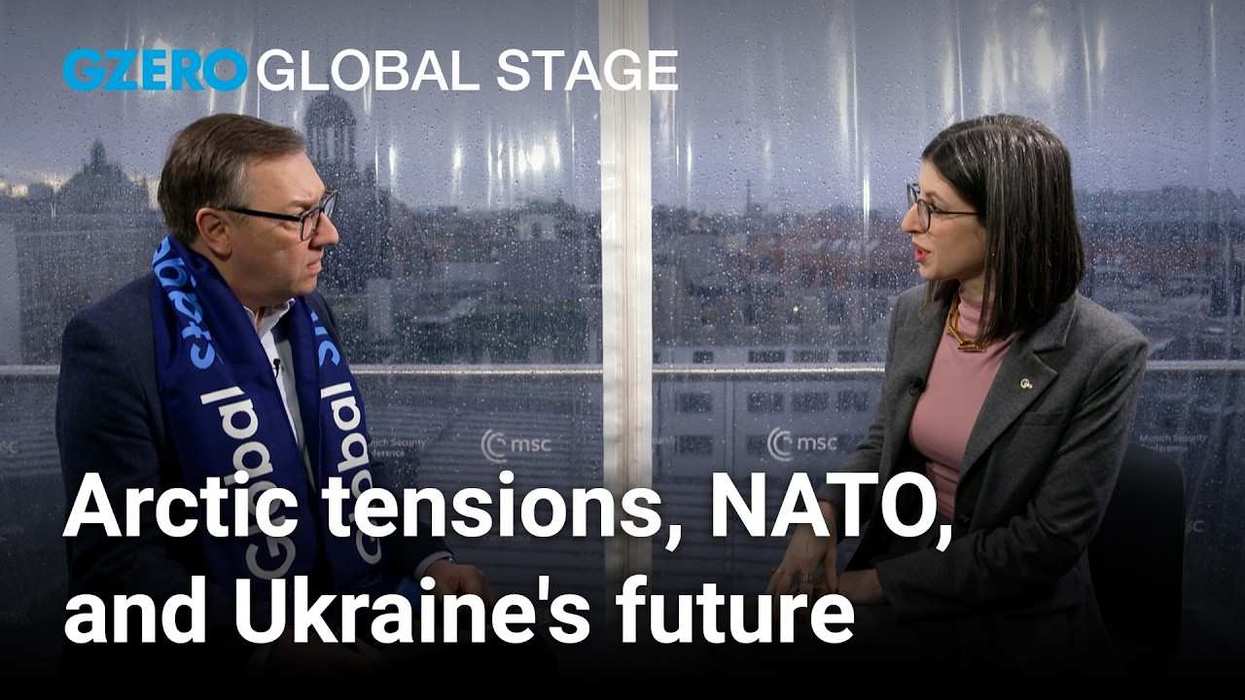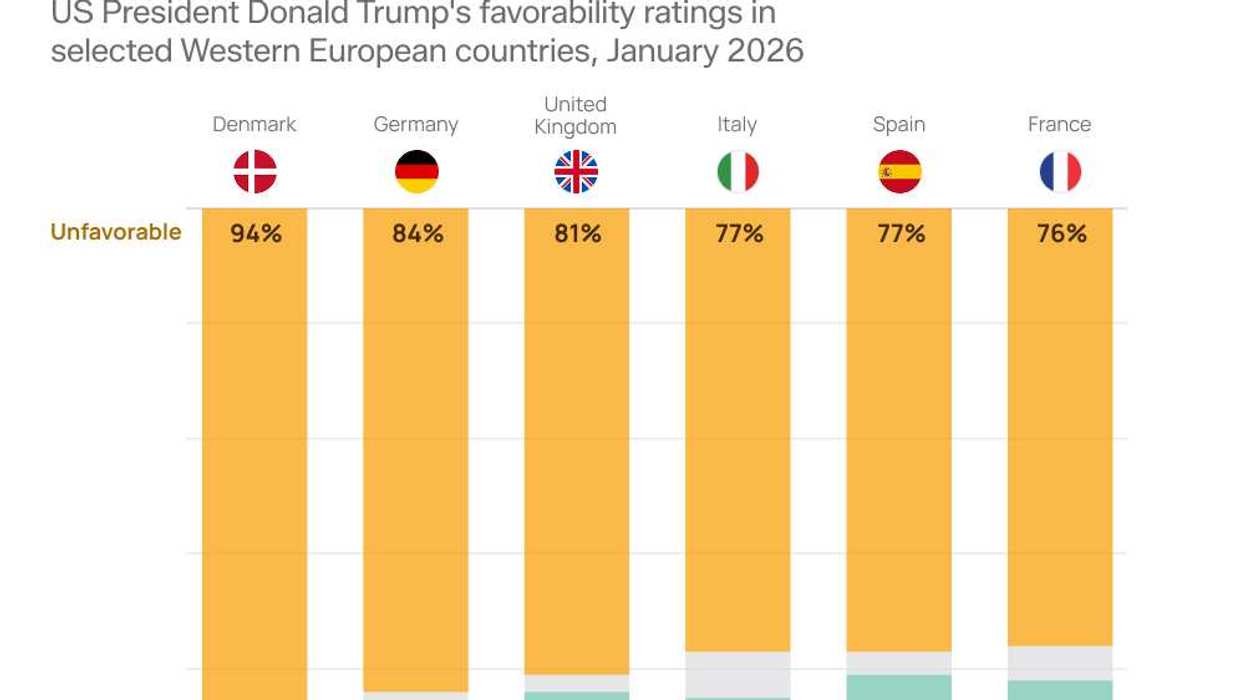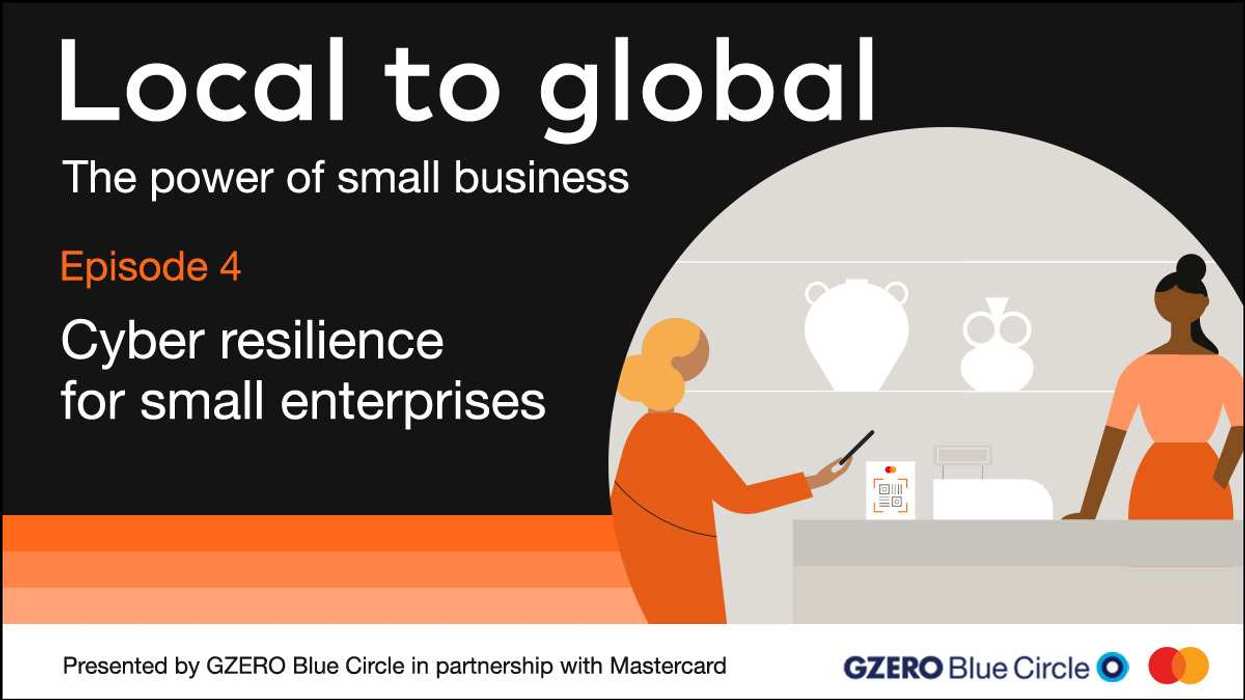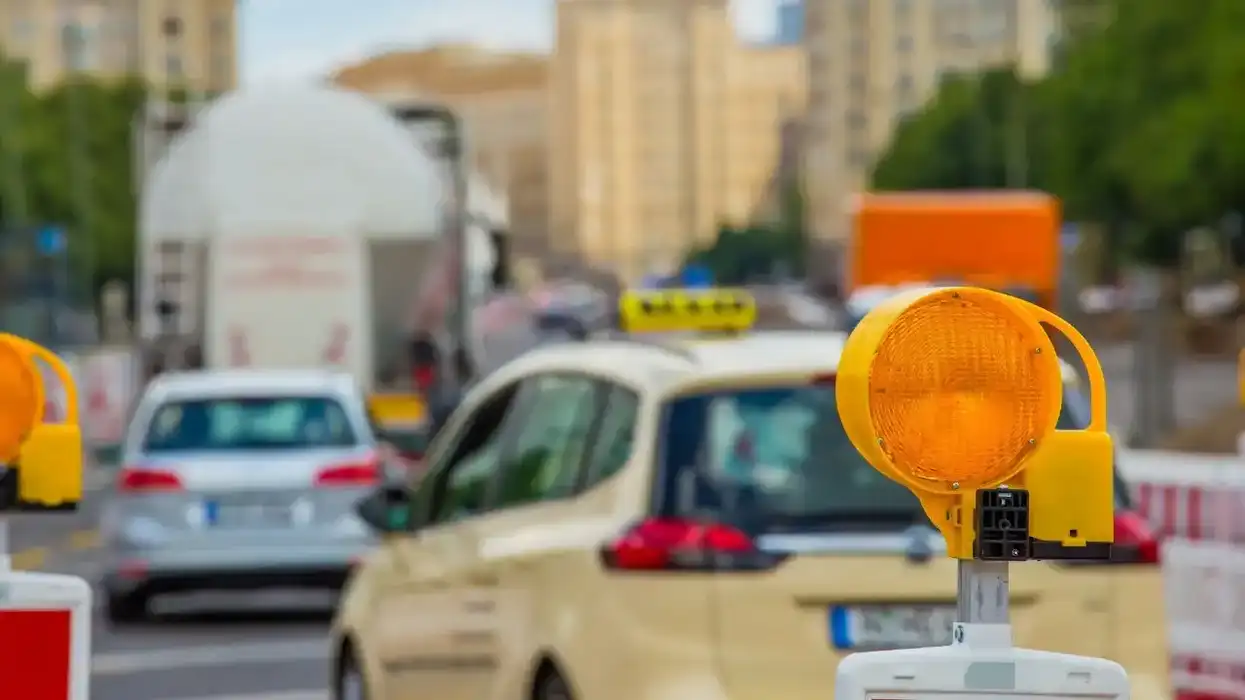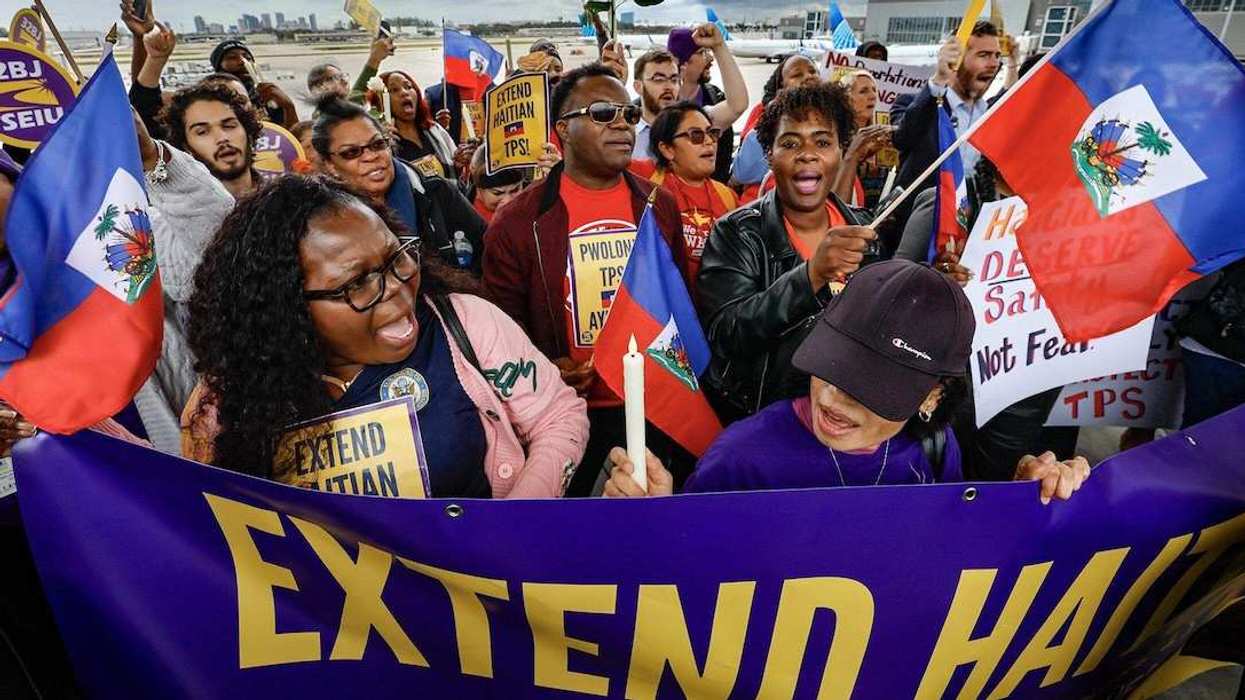VIDEOSGZERO World with Ian BremmerQuick TakePUPPET REGIMEIan ExplainsGZERO ReportsAsk IanGlobal Stage
Site Navigation
Search
Human content,
AI powered search.
Latest Stories
Sign up for GZERO Daily.
Get our latest updates and insights delivered to your inbox.
Global Stage: Live from Munich Feb 14th @12PM ET
WATCH
US & Canada
Presented by
More from US & Canada
Watch our Global Stage live premiere from the Munich Security Conference
February 13, 2026
Ian Explains
Feb 13, 2026
Hard Numbers: Valentine’s Day Edition
February 13, 2026
US-Iran talks: Are strikes inevitable?
February 13, 2026
You vs. the News: A Weekly News Quiz - February 13, 2026
February 13, 2026
Are we in an era of "wrecking ball politics?"
February 12, 2026
Quick Take
Feb 12, 2026
Graphic Truth: Where risk is heating up the fastest
February 12, 2026
Graphic Truth: Europe isn't loving Trump
February 12, 2026
US government to fund MAGA-aligned groups in Europe
February 12, 2026
Puppet Regime
Feb 12, 2026
Cyber resilience for small enterprises
February 12, 2026
Sanae Takaichi has the power to change Japan
February 11, 2026
Post-Gen Z revolution, where does Bangladesh go next?
February 11, 2026
What’s Good Wednesdays™, February 11, 2026
February 11, 2026
Football wins, local economy scores
February 11, 2026
Walmart’s $1 billion investment is strengthening associate careers
February 11, 2026
Building community-first AI infrastructure
February 10, 2026
Venezuela’s window is open – but only a little
February 10, 2026
ask ian
Feb 10, 2026
Trump says Modi says he won't buy more oil from Russia
February 10, 2026
Freedom of expression at the Olympics
February 09, 2026
Bad Bunny makes it to the Oval Office
February 09, 2026
US troops arrive in Nigeria
February 09, 2026
Trump announces new Olympic games
February 09, 2026
Inside Mastercard’s vision for smarter, connected mobility
February 09, 2026
Is the tide turning on Russia’s sports exile?
February 06, 2026
You vs. the News: A Weekly News Quiz - February 6, 2026
February 06, 2026
Graphic Truth: India's imports of Russian oil
February 05, 2026
The American experiment in Liberia
February 05, 2026
The Debrief
Feb 05, 2026
Renters catch a break
February 04, 2026
Is Trump about to strike Iran (again)?
February 04, 2026
Walmart’s commitment to US-made products
February 04, 2026
What’s Good Wednesdays™, February 4, 2026
February 04, 2026
Is China’s currency coming for the US dollar?
February 04, 2026
Haiti is on borrowed time
February 03, 2026
Building community-first AI infrastructure
February 03, 2026
Epstein and America’s two-tier justice system
February 03, 2026
Why Singapore sees AI as an opportunity, not a threat
February 03, 2026
Trump’s next move in Iran
February 02, 2026
The politics of population
February 02, 2026
How Singapore navigates a fragmented world
February 02, 2026
Singapore's global moment, with President Tharman Shanmugaratnam
January 31, 2026
Singapore thrived on globalization. Now what?
January 30, 2026
Graphic Truth: Costa Rica’s severe murder rate
January 30, 2026
Costa Rica’s crime-time election
January 30, 2026
You vs. the News: A Weekly News Quiz - January 30, 2026
January 30, 2026
Why the EU-India trade deal matters
January 29, 2026
What to know about China’s military purges
January 28, 2026
Five forces that shaped 2025
January 28, 2026
What’s Good Wednesdays™, January 28, 2026
January 28, 2026
Two US borders, two different approaches to Trump
January 28, 2026
Walmart’s commitment to US-made products
January 28, 2026
GZERO Europe
Jan 27, 2026
Trump, Canada, and the future of the free world
January 27, 2026
China’s economy is growing, but it’s stuck in a deflationary trap
January 27, 2026
Building community-first AI infrastructure
January 27, 2026
The world economy is resilient, despite tariffs
January 27, 2026
ICE in Minneapolis
January 26, 2026
GZERO Series
GZERO Daily: our free newsletter about global politics
Keep up with what’s going on around the world - and why it matters.


